
It is undeniable that we are all currently living in a moment where our emotions are hanging on by a thread, which is why we should do whatever we can to find ways to stay aligned internally, no matter what is happening externally. Our inner peace is reflected in our surroundings, especially in our homes. These are moments where our mental health is exposed to certain emotional triggers that can attack us when we're socially isolated, facing financial insecurities, or dealing with fears regarding our health and the health of our loved ones. This could trigger a major anxiety crisis.
This is why it is important to be alert of the symptoms so that you can walk yourself through any possible anxiety you might be encountering. At MamásLatinas we care deeply about your well-being and that you have the tools and advice handy so that you can live well, and this is no exception. We want to be by your side through the global crisis we're currently all living through.
More from MamásLatinas: 16 Tips for staying focused while working from home with kids
There's a study published in The Lancet medical journal where it mentions that the majority of cases of social distancing have negative psychological effects, like post-traumatic stress and anger. It's difficult to adjust to changes in the routine on top of fear and loneliness, which aren't a good combination. But you should always consult with a specialist, who will be able to tell you what is happening internally and will be able to get to the source of what you're feeling.
Firstly, you have to know that the anxiety you're dealing with is caused by the stress caused by what we're currently facing, and no, it doesn't mean you're crazy. You have to have patience with yourself, don't judge yourself and be more understanding. Don't feel alone in this journey that perhaps many women, like you, are facing, and are coping the best way they know how to. When you're trapped in a cycle of anxiety, the symptoms might vary from person to person, so here I present to you some of the most common ones.
A faster heart rate might be a symptom.
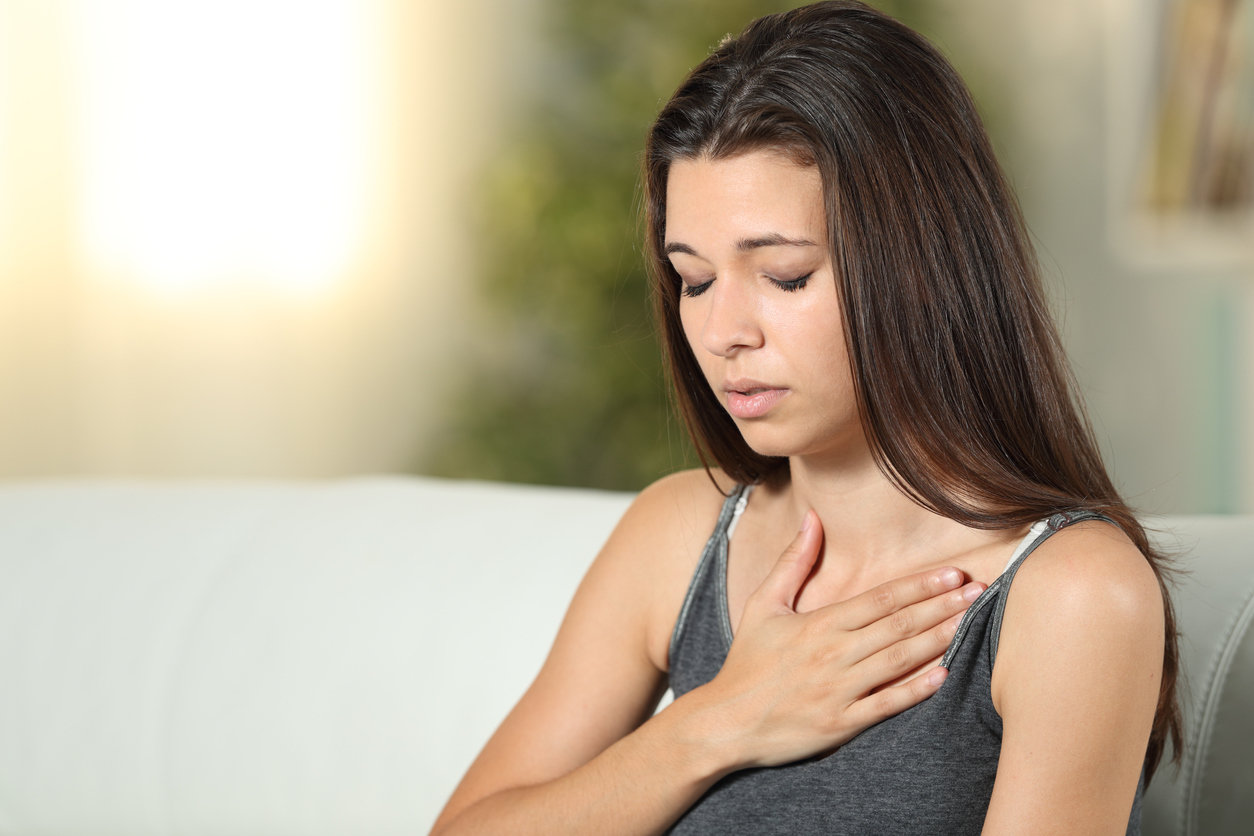
This is caused by the intense emotional response that you are having and it makes you feel like your heart is beating faster than usual. Your heart beats are fast, agitated, and strong. You feel them in your chest, but you might also feel the vibration in your throat. It's important that if it lasts longer than 30 minutes or if it causes you to faint, that you see a doctor right away.
Tip: Take deep breaths for about 3 to 5 minutes or cough loudly 3 to 5 times.
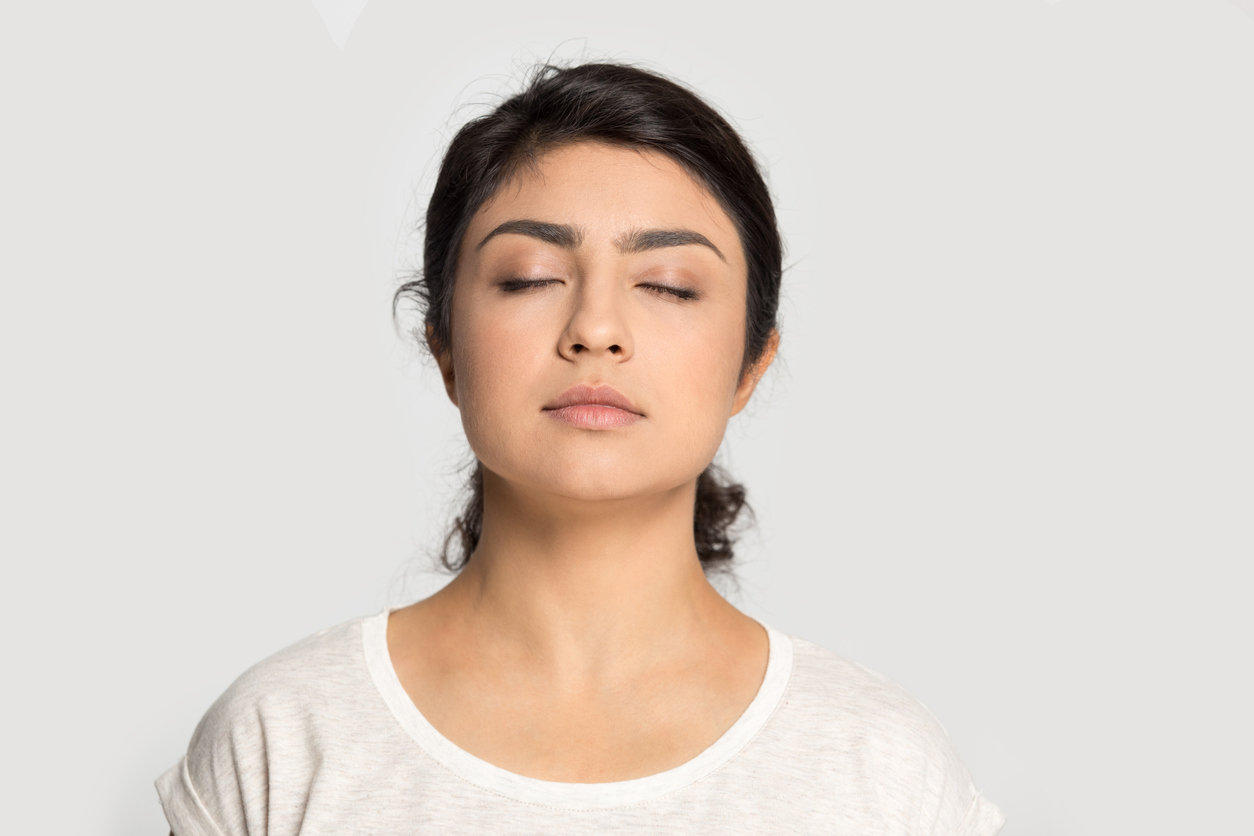
Breathing mindfully is a powerful tool to help your body and mind to find balance. Also, it also helps you beat stress. It is necessary that you breathe deeply, taking air in through your nostrils and exhaling through your mouth. Wash your face with cold water, or if you prefer, do cold compresses with a towel on your face and your head.
You feel pressure in your chest that could affect your breathing.
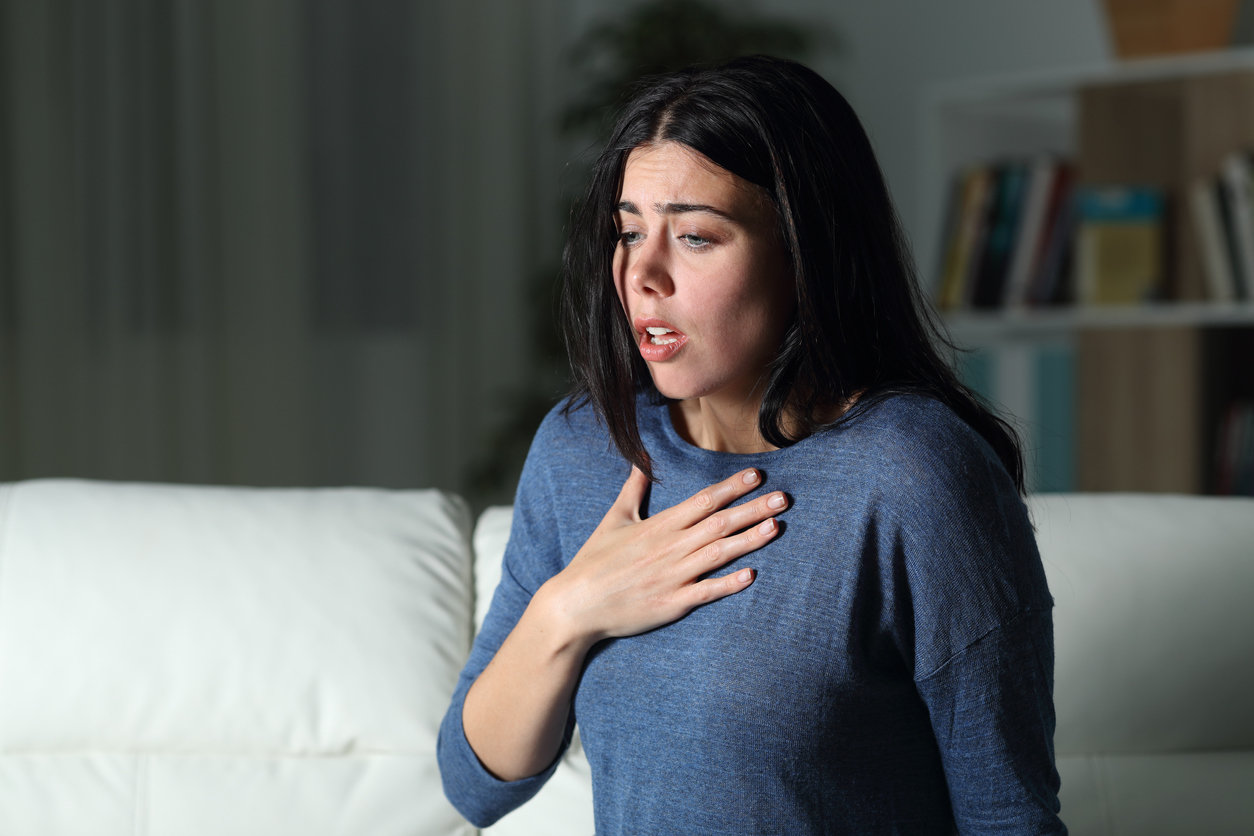
Due to the angst and constant worry about your health, you could feel that your chest won't expand enough for you when you breathe. Make sure you consult with your doctor to rule out any other health condition. If your specialist says that it's due to anxiety, focus on the advice I'm sharing next.
Tip: Lay down face down and pay attention to your body.

Fully live through the pressure that you are feeling in your body, don't fight against it, feel it fully. Undo all that is making you feel tense inside your body. Lay face down and place an arm under your chest and your other hand under your forehead. Bend your knees so your feet face the ceiling and then rock your legs from one side to the next. Feel the movement in your hips and your ribs and giving your body a feeling of expansion. Your breathing will start to feel more natural. Then switch arms and do the same.
Sweating and chills are a normal reaction to fear.
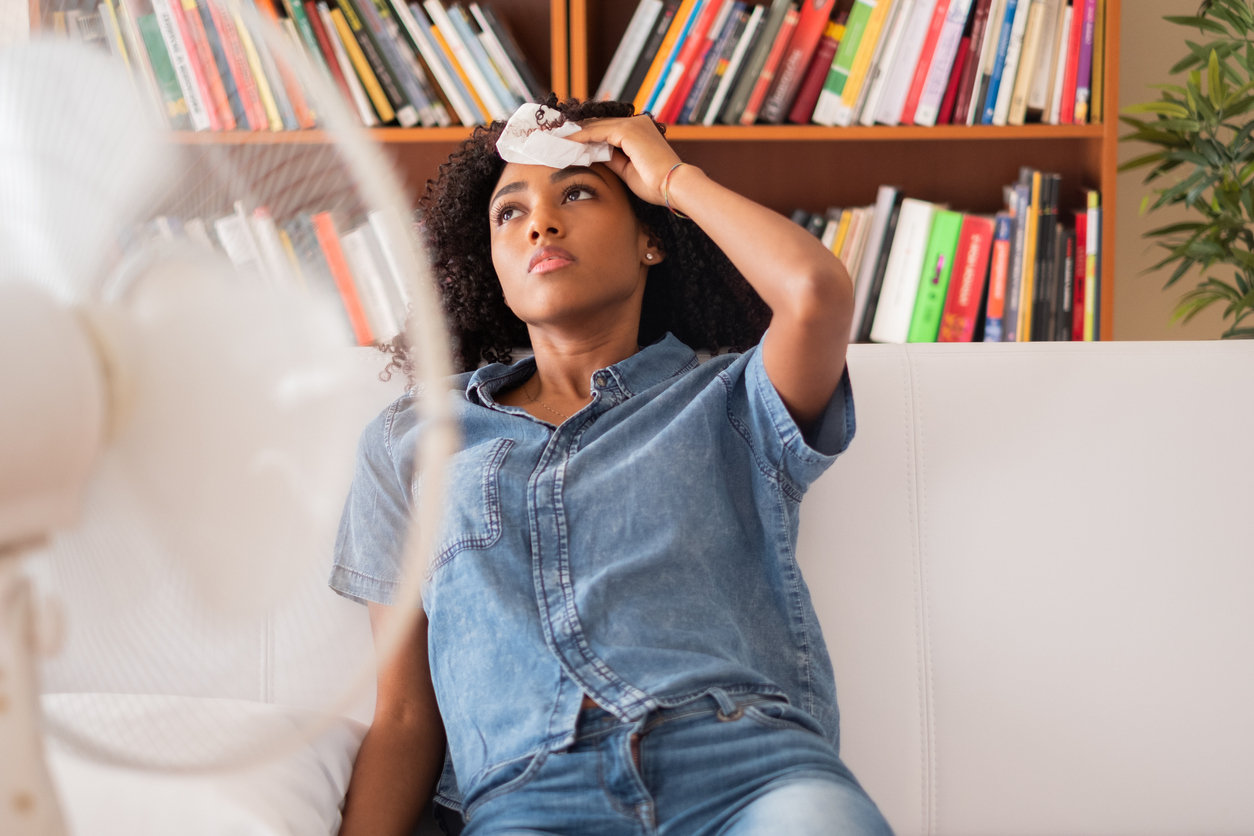
This happens because there is a low level of oxygen in the blood and it almost always happens in the palms of your hands, your feet, or your underarms. Also, adding to that, you can feel muscle tension and an overall ill feeling. The anxiety makes your body go into overdrive and makes your body alert to react, as if it is in danger.
Tip: Drink chamomile tea and keep yourself hydrated.

There are plenty of natural remedies that have a calming effect on the body, like chamomile tea, which relaxes your body in a natural way. You can drink it warm. The important thing it that you also keep your body hydrated to regulate your body temperature. Try to do some meditation to relax and rest.
You feel numbness or tingling around your body.
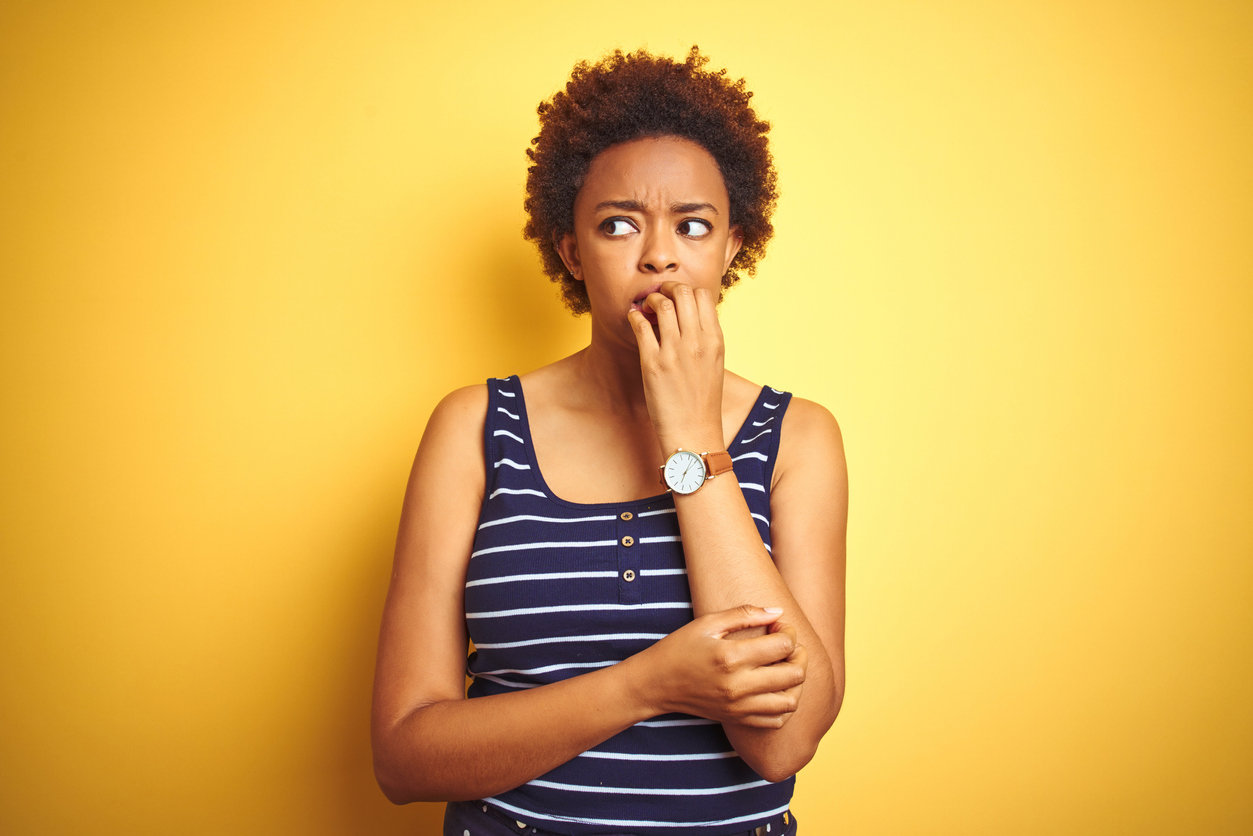
It's a reaction against the levels of stress and the imbalance that is unleashed in your body. You can feel that you lose feeling in your extremities. This is because your nervous system is on high alert and it produces numbness.
Get your body moving.
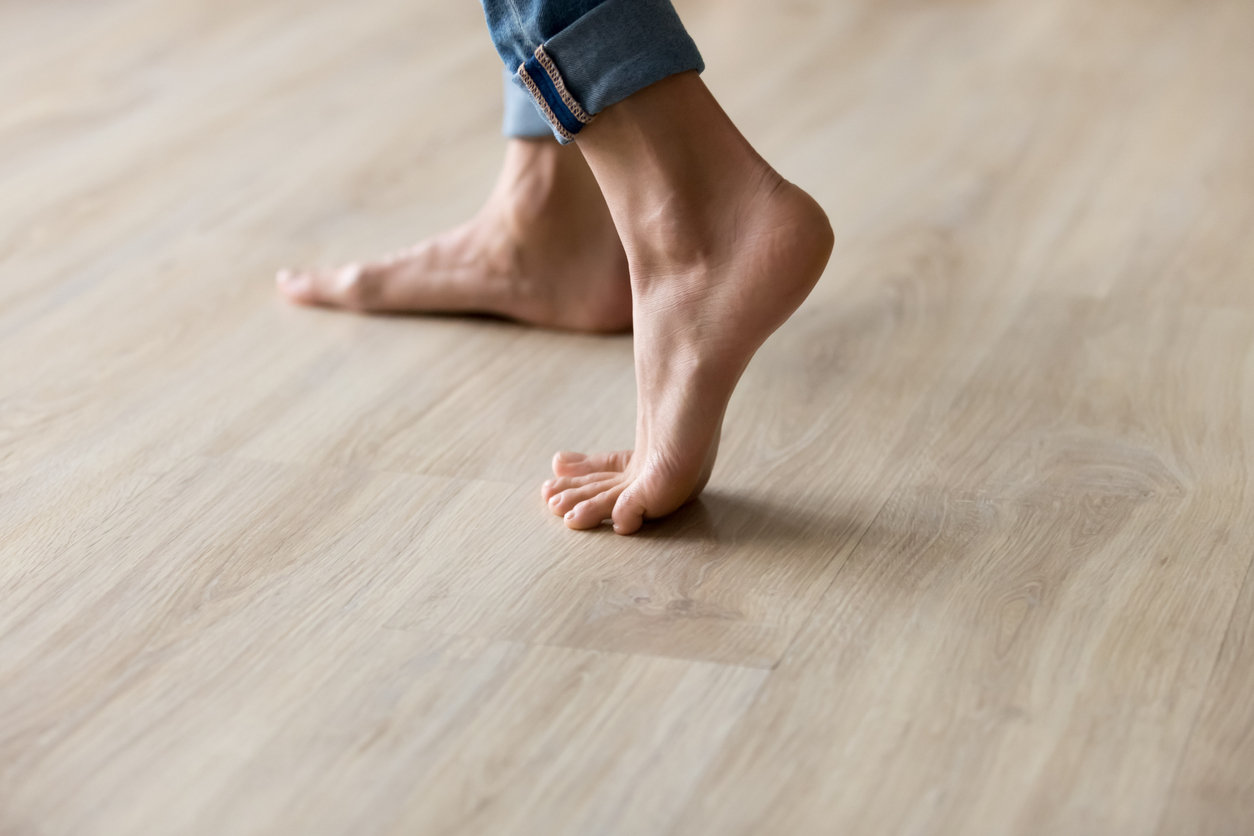
Even though right now we can't go out into public spaces, walk around inside your house or in your backyard, if you have one. Shake and move your body so it releases any tension while also helping regulate the blood flow in your body. Focus on walking while breathing deeply and clear your mind. You can even dance a little along to your favorite songs!
The fear of death might creep in because of all the other symptoms.

Because you're constantly in a state of alert, you have a lot of physiological activity going on and you might feel overwhelmed by catastrophic thoughts because of everything you are feeling. Remember that the first thing you need to do is focus on deep breathing, accepting the negative emotions and feelings, and taking control over your thoughts to focus on things that are tangible and real around you.
Tip: Ask yourself reasonable questions.
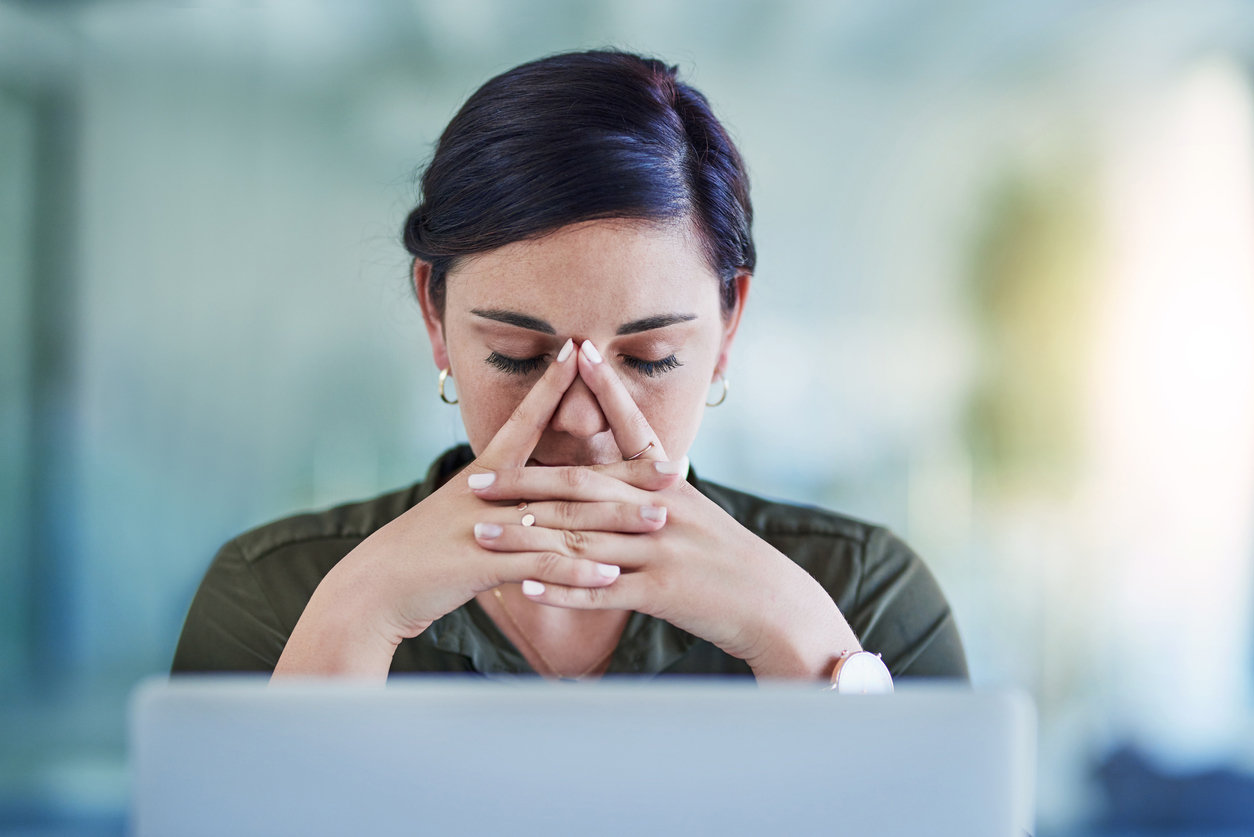
Asking yourself rational questions will help take your mind away from the negative thoughts that are circling inside your brain. Focus on questions like, "What is the probability that this might actually happen?" "Am I doing my best?" "Am I safe?" The idea is that you check in with yourself to make sure that your thoughts are rational while your fears, while understandable, are somewhat irrational.




